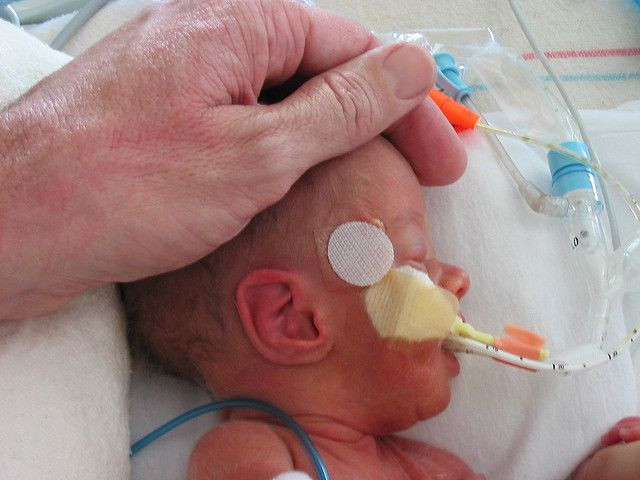Premature Babies Born More Often To Mothers Who Don’t Space Out Their Pregnancies

Expectant mothers have another risk factor to add to the laundry list of conditions and complications that can result in a baby being born prematurely, a new study finds. This time around it involves short spacing between pregnancies.
While some 11 percent of mothers who give birth prematurely show no risk factors during their pregnancies, the other 89 percent may be have been overweight, carrying twins, or giving birth for the second or third time. Now research from the University of Cincinnati suggests that women also up their risk for preterm birth if they have a second child earlier than 18 months after the delivery of their previous one.
"We need to place a particular focus on waiting at least 18 months before becoming pregnant again in order to minimize the potential risk for preterm births for all women,” said study co-author and maternal-fetal medicine specialist Emily DeFranco in a university news release.
DeFranco and her colleagues studied the outcomes of 454,716 live births from women with two or more pregnancies over a six-year period. Relying on birth records from the Ohio Department of Health, the team split each woman into one of three groups: those who had waited the optimal time of 18 months between delivery to the following conception, those with 12 to 18 months of spacing, and those with fewer than 12 months between.
The results showed that complication rates differed dramatically between women who waited the optimal amount of time and those who jumped the gun. Women, they found, were more 53.3 percent more likely to give birth before 39 weeks gestation if they waited fewer than 18 months, while the others had a 37.5 percent risk. Worse, the trend appeared to intensify as the conception drew nearer to the prior delivery, as 12 months or fewer yielded twice the risk for preterm birth — before 37 weeks — as those who waited all 18.
"Any woman is at risk for having a premature baby,” DeFranco pointed out. However, “those who conceive prior to 18 months after delivery increase their chances of having a premature baby.” The study also found black mothers have an increased risk for premature birth, irrespective of the fact they also had the shortest birth spacing.
Nationally, preterm birth affects roughly half a million babies, or one out of every eight children born in the U.S. Nearly 35 percent of all infant deaths in 2009 were the result of early delivery, according to the Centers for Disease Control and Prevention. Among the other known risk factors for preterm delivery, aside from short birth spacing, include infections, prior preterm birth, high blood pressure during pregnancy, substance abuse, late prenatal care, and stress.
Source: DeFranco E, Ehrilch S, Muglia L. Influence of interpregnancy interval on birth timing. BJOG. 2014.
Published by Medicaldaily.com



























